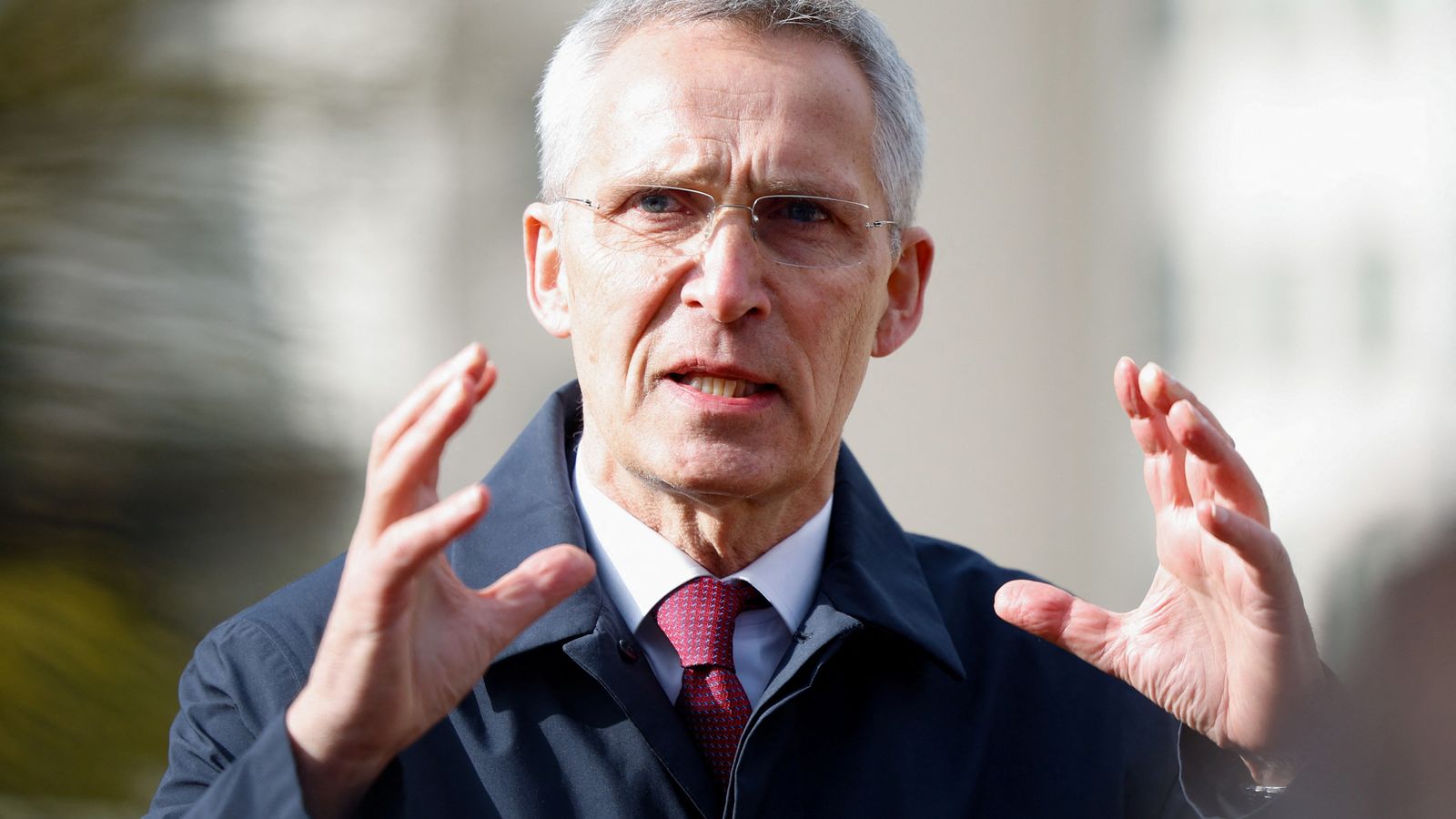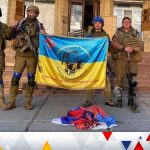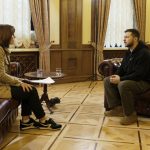The head of NATO has said he is “absolutely” confident that allies will agree on a form of wording at a summit this week about Ukraine’s future accession to the alliance that will be acceptable to Kyiv.
President Volodymyr Zelenskyy – who has yet to confirm whether he too will attend the gathering of NATO allies in Lithuania on Tuesday and Wednesday – is seeking a clear invitation to join.
He wants it to go much further than an agreement in principle at a summit in Bucharest in 2008 that NATO’s doors were open to new members.
Ukraine war latest: Russian soldiers ‘trapped’ near Bakhmut
However, despite time running out, discussions are still ongoing among member states about what the formal wording about Ukrainian membership will look like.
Some countries, including the UK and the Baltic states, are keen for Ukraine to be invited to join quickly once the war with Russia is finished, while others, such as Germany, are more wary.
Asked whether he was confident that an agreement would be reached that is acceptable by all parties, Jens Stoltenberg, the NATO secretary general, told Sky News: “Yes absolutely.”
In an interview ahead of the summit, he said: “I am not saying it is always easy and straight forward because when we are many allies of course there are different positions, different views, but that is nothing new… but the strength of NATO, which we are proving again and again, is that we are always able to unite around a common task, a common message.”
Be the first to get Breaking News
Install the Sky News app for free
The alliance has already agreed to upgrade the status of the two sides’ ties with the creation of a new body – the Ukraine-NATO council.
“This provides us with a tool to really deepen and strengthen the partnership between Ukraine and NATO and to help Ukraine move even closer to NATO and membership.”
But a decision by Mr Zelenskyy to attend the Lithuania summit in person may well hinge on whether he is happy with the signal allies give him on NATO membership.
Mr Stoltenberg said it was not possible to be “100% certain” that the Ukrainian president would attend given that he is the leader of a country in the midst of a war.
Read more:
Sunak and Biden to meet in UK amid cluster bomb divisions
Why Sunak and Biden are struggling to keep spark of special relationship alive
NATO Secretary on Russia rebellion and future of Vladimir Putin
“But I look forward to welcoming him,” he said, noting they have talked several times.
Another major point of discussion is the accession of Sweden to NATO.
Sweden and Finland ended historic positions of neutrality in the wake of Russia’s full-scale invasion of Ukraine in February 2022, saying they wanted to join the alliance.
Helsinki has since become a member but Turkey has held up Stockholm’s entrance because it accuses the Swedish authorities of being too lenient towards Kurdish militant groups viewed as a threat by Ankara.
Mr Stoltenberg is due to host a meeting between the Turkish president and the Swedish prime minister in the Lithuanian capital of Vilnius on Monday.
He said it was “still possible” to overcome Turkish concerns related to Sweden in time for the summit.
A third point of friction has been about who will replace Mr Stoltenberg as the head of the alliance.
The UK’s defence secretary, Ben Wallace, had been in the running but was not supported by the United States – the most influential voice in the alliance.
Click to subscribe to Ukraine War Diaries wherever you get your podcasts
It meant that allies ended up asking Mr Stoltenberg to extend his term yet again.
He said it was an “honour to serve” at such a difficult time.
He also insisted that the failure to agree on a new secretary general, to finalise Swedish accession and to reach – yet – a united position on the path for Ukraine’s membership was not a sign of disunity but evidence of the healthy discussions that make NATO strong.
“Before every summit, before every important meeting, NATO – we consult,” he said.
“We need to spend some time in meetings to find language, to find the common ground to reach consensus because we take decisions by consensus.
“For me that’s not a weakness that is a strength.”






















